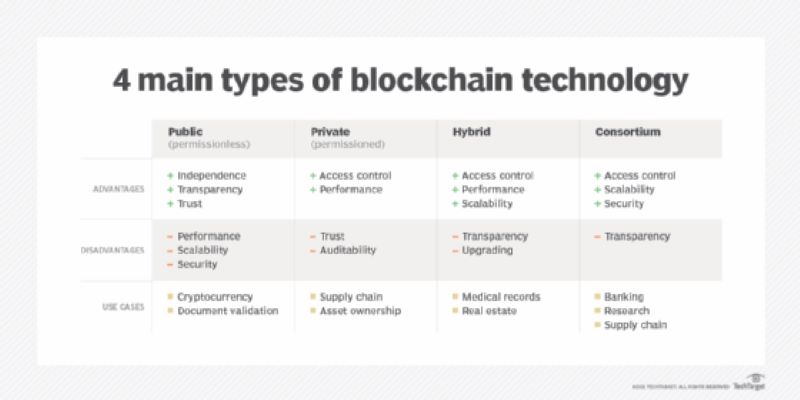Discover the future of business with Casper’s Blockchain Solutions for Enterprises. Enhance your systems with dynamic, upgradable smart contracts designed for optimal performance and adaptability. Unleash the potential of blockchain technology and transform your operations.
What is Enterprise Blockchain?
An enterprise blockchain is a blockchain designed to allow institutions to automate their business processes and systems, as well as enhance how they verify, store, and share data and value with others. The distinction of a blockchain being public or private does not necessarily determine whether it is suitable for enterprises or offers business solutions.

A primary concern with using public blockchains is the visibility of data on a public ledger, making it accessible to anyone. However, public blockchains utilize cryptography, which ensures that users remain pseudonymous. Consequently, data on a public blockchain often appears as gibberish to unintended users and can only be deciphered by the intended recipients using private keys.
How is Blockchain For Enterprise Different from Other Blockchain Types?
The primary distinction between an enterprise blockchain and other types is the emphasis on smart contract capabilities. Enterprise blockchains are specifically designed with robust smart contract functionality as a central feature. This enables organizations to automate processes and create complex systems, which is crucial for enterprise applications.
When selecting a blockchain, the robustness and flexibility of its smart contract application are critical considerations. If a blockchain lacks smart contract capabilities or if its implementation is too rigid for business use, it is not considered enterprise-grade.
For example, Bitcoin, while excellent for receiving, storing, and sending digital assets, does not support the development of applications and systems due to its limited smart contract functionality. However, there are initiatives to enhance Bitcoin’s capabilities in this area, such as the RSK project, which aims to integrate smart contract features into the Bitcoin blockchain.
What are the Different Types of Blockchain Networks?
| Type of Blockchain | Description | Examples |
| Public (Permissionless) | Blockchains with peer-to-peer networks that anyone can join and leave without permission. These blockchains are open and decentralized. | Ethereum, Casper Network, Cardano, Polkadot |
| Private (Permissioned) | Blockchains managed by a single entity that controls all nodes on the network. Participation requires explicit permission from the managing entity. These blockchains are often more centralized and controlled. | Typically custom-built by businesses; no prominent standard examples listed |
| Consortium (Federated) | Blockchains managed by a group of entities, often in specific industries. Participation requires approval from existing members or consortium management. These blockchains balance decentralization and control among multiple stakeholders. | Corda by R3, Fabric by Hyperledger, B3i |
| Hybrid Blockchains | Blockchains that are public (permissionless) but allow the creation of mini private blockchains on top of them. These private blockchains benefit from the main public blockchain’s security and stability while remaining accessible only to their creators and selected stakeholders. | Polkadot, Kusama |
Casper’s – Blockchain Solutions for Enterprises
The Casper Network is a public blockchain specifically designed to enhance business systems and processes through its unique smart contract capabilities. Tailored for enterprise users, Casper offers optimal functionality in a more accessible format compared to other market options.
A key strength of Casper’s smart contracts lies in their dynamism, allowing customization to meet specific needs and adapt to evolving internal and external conditions. This dynamism is partly achieved through oracles—external data sources that feed into smart contracts to verify conditions and trigger actions. Chainlink is a well-known provider of such services.
Casper goes beyond traditional smart contract functionality by enabling upgradable smart contracts. This feature allows developers to modify certain aspects of the contract as needed, such as adjusting stakeholder numbers, changing procedural steps, or updating data processing methods. Importantly, these upgrades do not compromise the system’s credibility, ensuring robust and reliable enterprise solutions.
Click Solution of Blockchain to explore how Casper can revolutionize your enterprise


